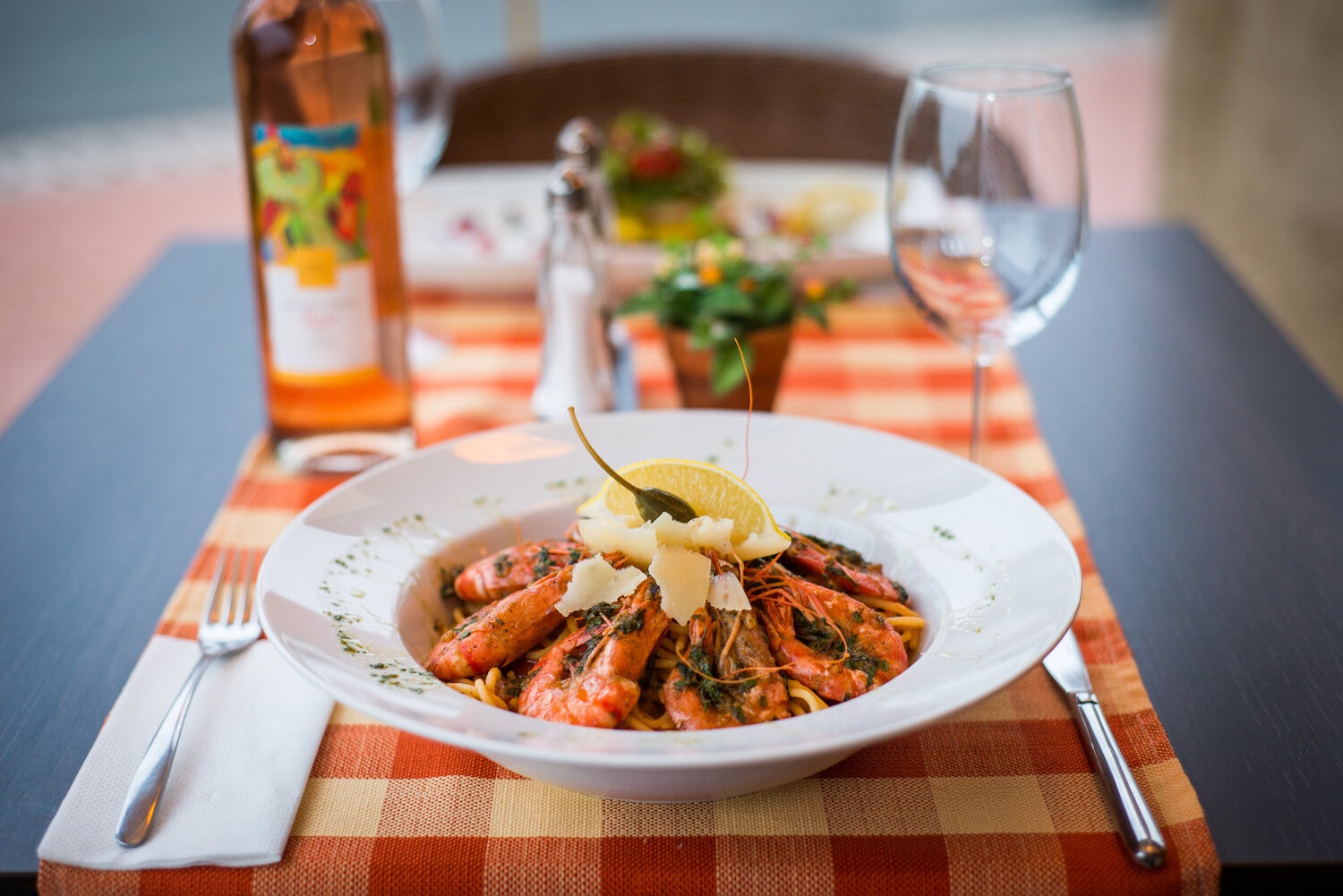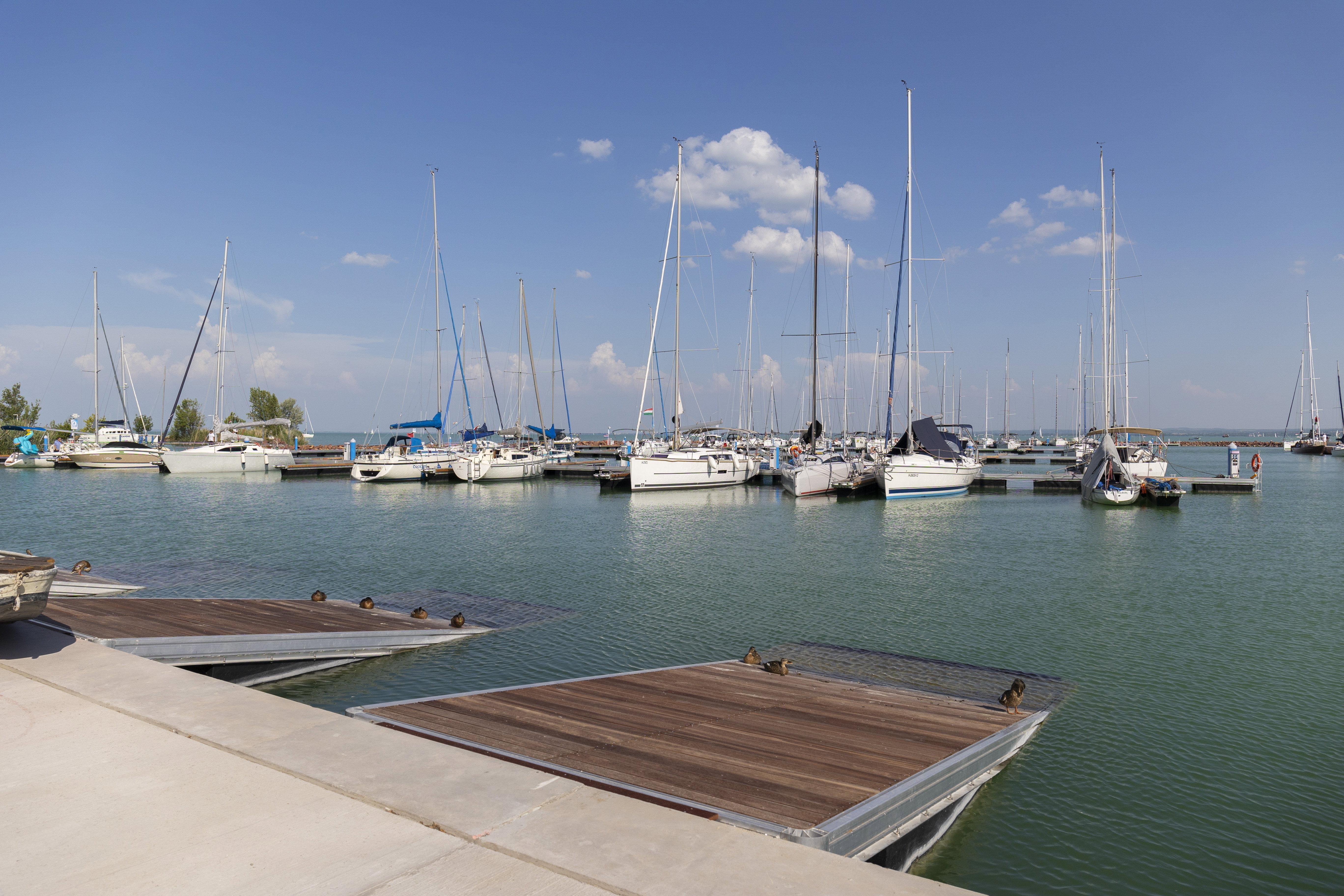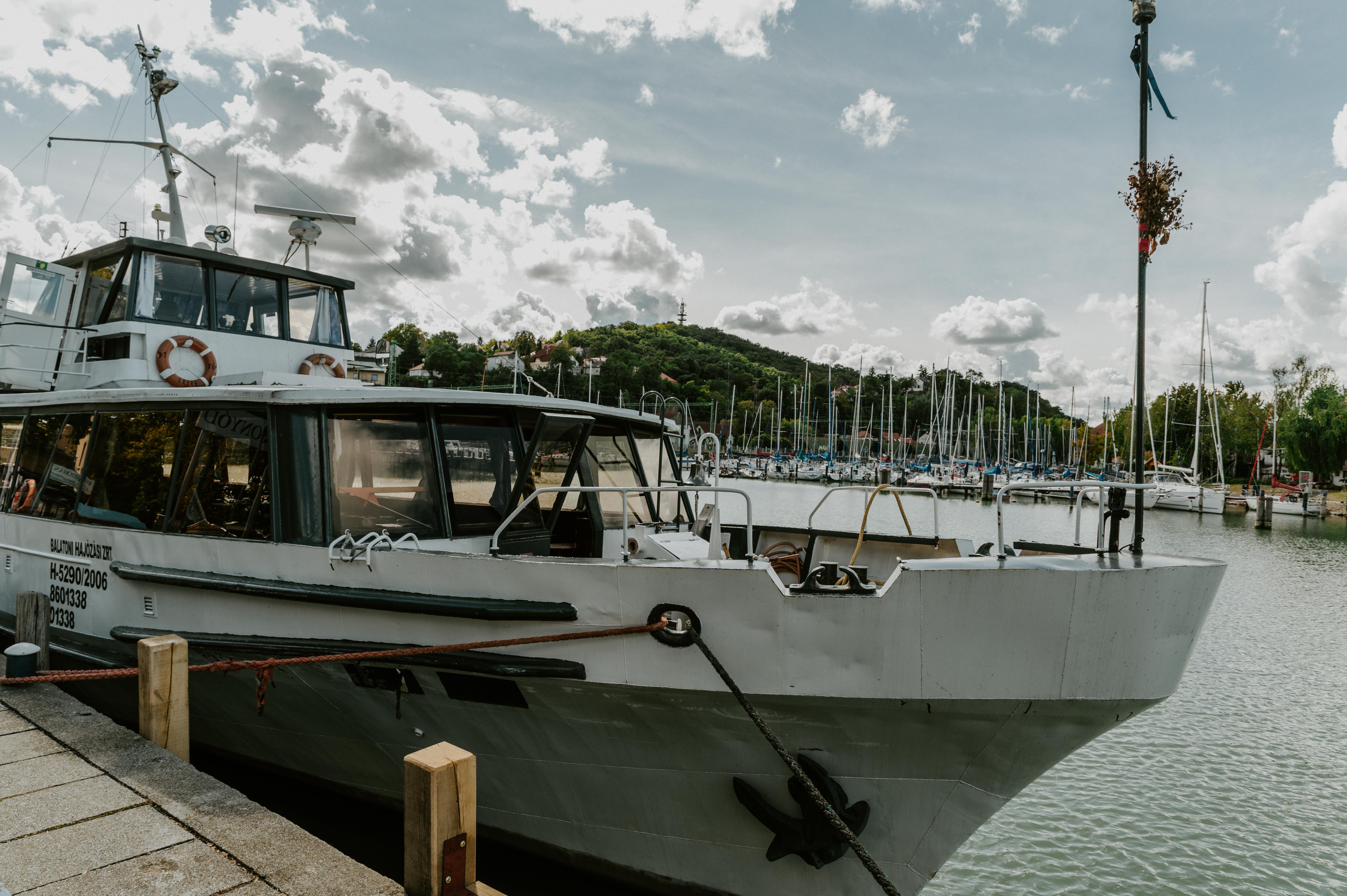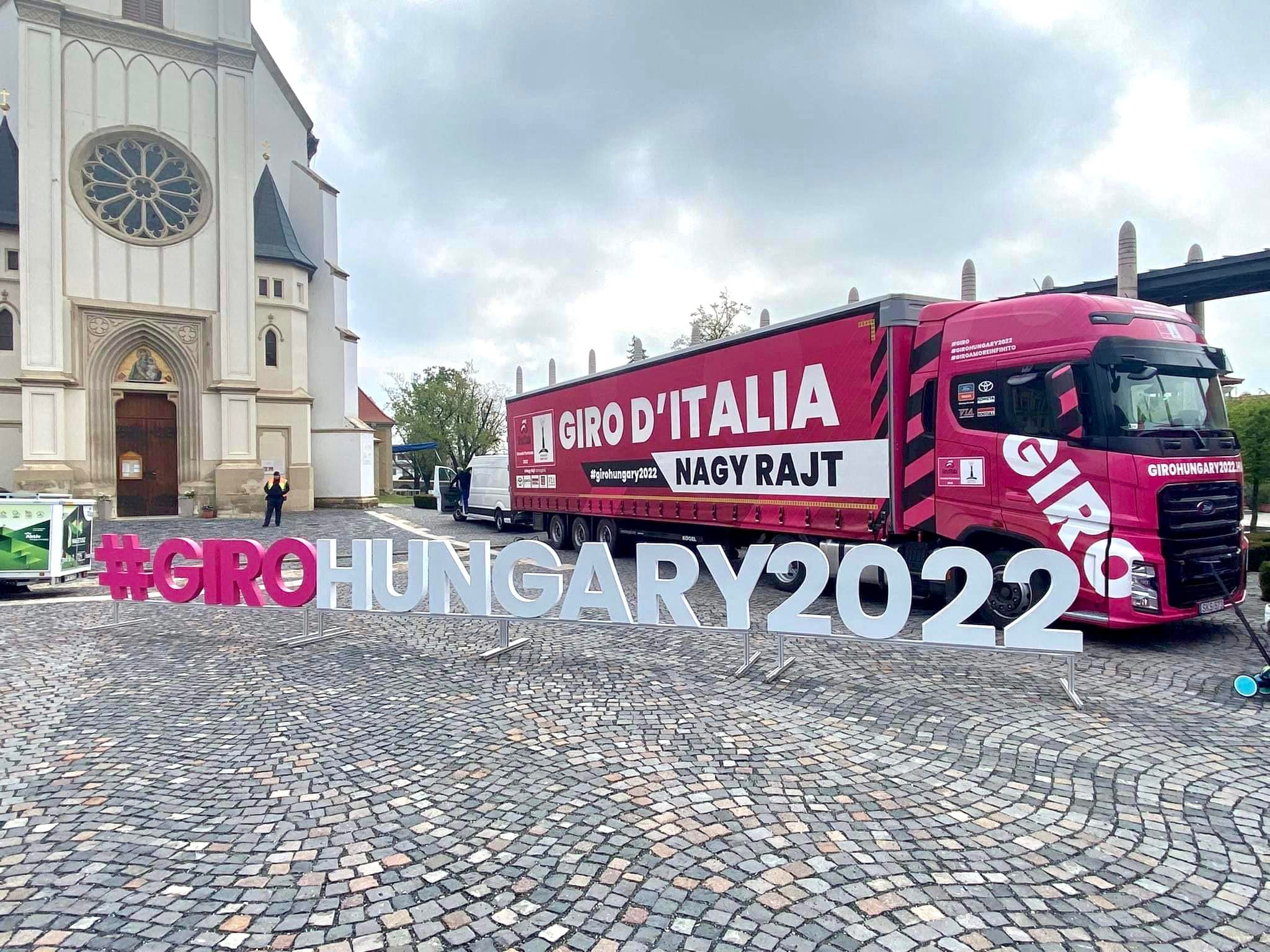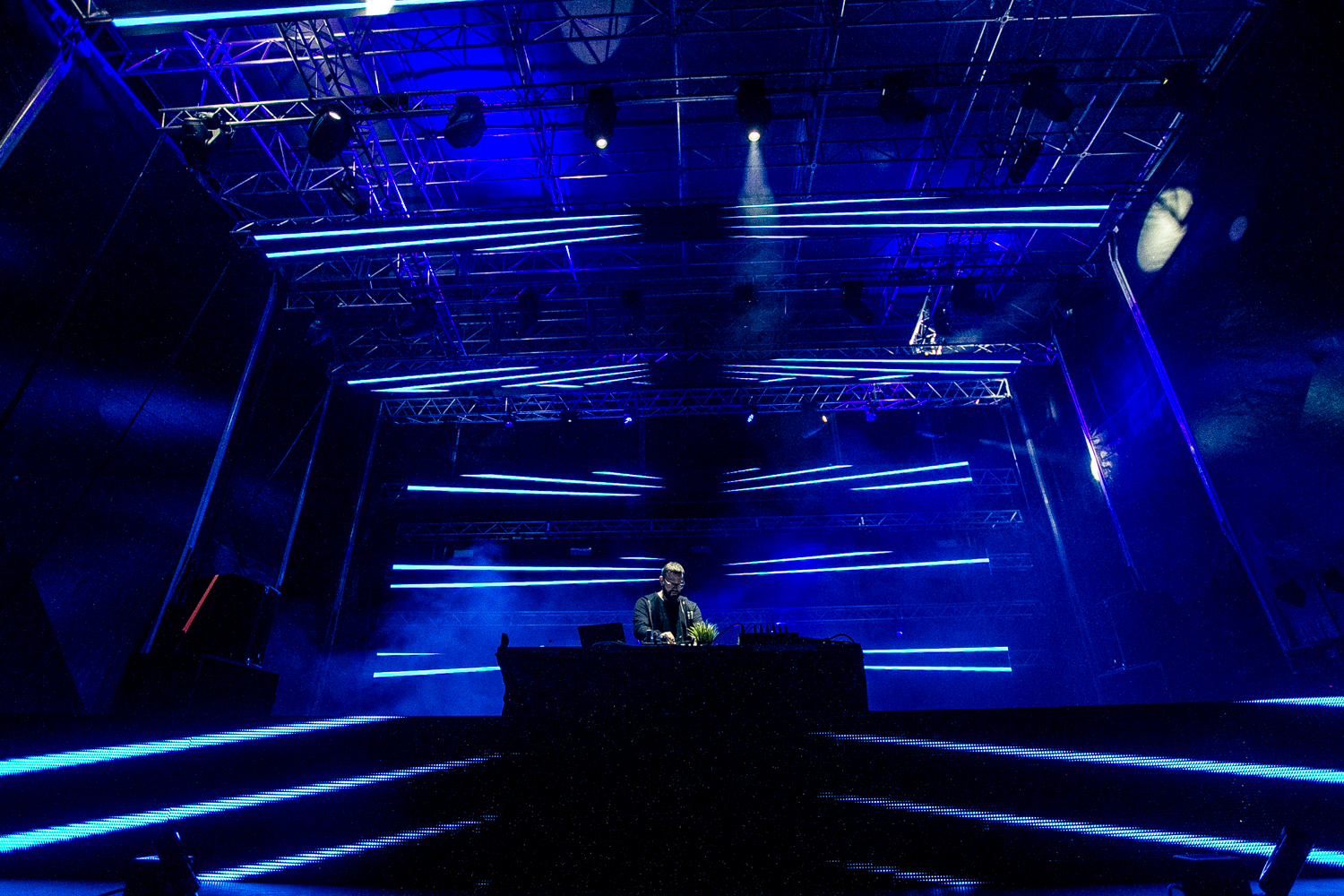In line with the original plans, the restaurant was to be erected elsewhere, and it was meant to function as a place for music and dance enthusiasts, but in the end the venue became popular among foodies dropping by for lunch or dinner – says Csaba, who built the restaurant with his own two hands.
Due to the proximity of the beach and the marina, Csaba was adamant that the exterior and interior of Mango should look more refined than the ordinary restaurants of Balaton, so he decided to put in a fireplace, several bookshelves, and even a piano, which indicates that music themed events are regularly held here in the evening.

Csaba knew from the beginning that he wasn’t going to open a Michelin star fine dining restaurant on the promenade of Balatonlelle. His aim was to offer good, reliable bistro cuisine with dishes that are more substantial than a gyros plate with fries – such as a plate of delicious Balaton fish. Mango was launched in 2009 with a relatively concise menu, and while the selection grew gradually to keep up with popular demand, the ars poetica of the establishment hasn’t changed one bit.

Without a doubt, saltwater fish and fish from around Balaton make up the strongest section of the menu. Offering locally reared fish is quite difficult due to current regulations: restaurants are not allowed to buy from Balaton anglers, and commercial fishing is prohibited everywhere on the lake. Thankfully, Csaba found a nearby fish farm that sells delicious fish with tender, white meat. The recipe is simple: the carp are given high-quality feed, and they have enough room to move around, which means their meat is nice, lean, and a joy to eat.

Our host told us so much about this famous carp that we had to see for ourselves how amazing it really was: we went for the version with polenta and honey-and-mustard infused balsamic vinegar (2,290 forints), and we were not disappointed. In fact, we loved it so much that next time we would be up for trying other fish dishes as well, such as the zander (3,290 forints), or exquisite seafood like the flounder with rucola pancakes and caper sauce with olives (2,390 forints).

Those who aren’t particularly big fans of fish will also find something to their liking on the menu, which includes everything from Indonesian pasta and Italian favorites to Hungarian style meals (around 1,000-2,000 forints). Pizza features very significantly in the selection, not least because in 1989 Csaba was the first entrepreneur to sell freshly baked pizza in Balatonlelle.

We started talking about the past, and he told us a nostalgic tale of what the ‘80s were like around the lake: the beaches and the town’s iconic nightclubs were full of tourists from Hungary and abroad, mainly West Germany. “In 1984 I was already working in the kitchen and waiting tables, and I continued throughout my teens. In winter I could live quite comfortably off the money I made in the summer season. In the 1980s pizza was already available at an eatery in the building of Novotel Hotel in Budapest; that’s where I found out what it actually was, and I thought I could replicate the recipe here in Lelle.” The dough was prepared in Kaposvár, and the pizza was baked in Balatonlelle, in a small, 30-square meter store. That’s all that was needed for a mini gastro revolution.

The ‘90s saw a major decline in tourism, and by 2000 Hungarians had replaced foreigners as the typical holidaymakers frequenting the Balaton region. That’s one of the reasons why Csaba opened Mango, and he also wanted to return to his hometown.
His local patriotism has influenced his wine list as well, as it features nothing but Konyári, Ikon and Bujdosó products. The jams and spices come from local producers, but the vegetables cannot be procured locally in large enough quantities. The flowers patrons can occasionally spot on their plates are also grown nearby – Csaba likes experimenting with adding edible flora to his cuisine.

In order to preserve the condition of the above-mentioned piano, Csaba likes to bring in nationally renowned musicians, who regularly entertain the restaurant’s guests during and after dinner. According to Csaba, booking a table for these events is highly recommended; for example, the retro disco party held on New Year’s Eve was a major hit.

